|
You may think drinking water is just something you have to do as part of a healthy lifestyle. But it turns out that drinking water has a number of benefits you might not have realized. There are many studies showing the benefits of drinking water, but most people don’t really know what those benefits are or how drinking water can improve their lives. Well, here we will reveal those hidden secrets about drinking water that you probably didn’t know.
Good for your digestion Digestion is the process by which your body breaks down food into nutrients that can be used by your body. And drinking water can actually help with this process! Water helps move food through your digestive tract, so it can be broken down more efficiently. This means you’ll experience less bloating, cramping, and gas. In other words, drinking water can keep your digestion regular and efficient. Helps you lose weight Drinking water may help you lose weight. Specifically, water can help you lose “bad” (or unhealthy) weight, as opposed to “good” weight like muscle. When you drink water, it causes your body to release a hormone called vasopressin, which causes your body to release fat cells. This is why many weight loss programs recommend drinking water to help with weight loss. However, it’s important to note that water doesn’t automatically mean weight loss. You can also drink other calorie-free beverages such as herbal teas, coffee, or even black tea. Improves your skin Your skin is the largest organ in your body. It is responsible for protecting your body from harmful toxins, bacteria, and viruses. Your skin also helps regulate your body temperature and it produces vitamin D, which is essential for strong bones and teeth. This is why it is so important to keep your skin healthy! There are many ways to improve your skin’s health, such as getting enough sleep, eating nutrient-rich foods, and drinking plenty of water. Drinking water can actually improve your skin’s appearance. This is because water helps flush out toxins and excess sodium from your body. When these toxins and sodium build up in your body, they make your skin look unhealthy and wrinkly. Help with exercising Drinking water before, during, and after a workout can help you stay healthy and fit. Water can help prevent muscle cramps and fatigue that can occur during a workout. It is best to drink water before and during a workout because water does not replace electrolytes, which are minerals that can be depleted when exercising. Electrolytes help regulate your heartbeat, blood pressure, and regulate your muscles. When you exercise, your body sweats, which can cause you to lose electrolytes. Drinking water before and after exercising can help prevent dehydration and improve your overall health and fitness. Boost your brain function When you’re dehydrated, your body has to work harder to do everything. The same goes for your brain! When you haven’t had enough water, your brain doesn’t work at full capacity. Drinking water can help improve your brain function and even boost your mood! When you don’t drink enough water, your blood vessels constrict. This means that blood isn’t flowing as easily throughout your body. When your blood vessels are constricted, your brain doesn’t get enough blood. This can make you feel foggy and like your brain isn’t working properly. In conclusion, drinking water has a ton of health benefits. It can help improve your digestion, assist with weight loss, improve your skin, help with exercising, and boost your brain function. With all of these benefits, it's no wonder people are encouraged to drink more water! Now that you know about the benefits of drinking water, you can upgrade your health and fitness level by making sure you drink plenty each day.
0 Comments
The quality and duration of your sleep are just as important to your health and well-being as the number of hours you spend in bed each night. The right combination of temperature, lighting, noise levels, and other personal factors can have a huge impact on how well you sleep. Inadequate rest has been linked to many negative consequences including obesity, high blood pressure, diabetes, depression, chronic pain and heart disease. While some individuals are genetically predisposed to insomnia or other sleeping disorders, most people struggle from time to time with getting enough rest. If you’re reading this article, it’s likely that getting enough sleep is something that concerns you from time to time. Stay with us as we explore some strategies for improving your quality of rest so that it no longer feels like a struggle.
Know your sleeping habits and environment A great way to improve your sleep is to become aware of your sleep habits. What time do you go to bed, how many hours of sleep do you get each night, and what factors affect your quality of sleep? If you have trouble falling asleep, keep a journal of your sleep habits. This will help you identify patterns and potential causes of your sleep issues. Identify which factors in your life might be impacting the quality of your rest including daily habits, foods, drinks, medications, and exercise. To get a bigger picture of your sleeping environment, spend a week keeping a sleep diary. Make a note of the following: temperature, light, noise levels, and other factors that might be impacting your sleep. This information will help you identify areas of improvement to help you sleep better. Create a routine before bed A good way to ensure you get the best rest possible is to create a sleep routine before you go to bed. This can help with falling asleep and staying asleep, and will also help you to relax and unwind for the day. A common method of creating a sleep routine is the 3-step process outlined in the infographic below.
Turn off all electronic devices As mentioned above, consuming caffeine, nicotine, and large meals, and looking at bright screens prior to going to sleep can disrupt your sleep cycle. But another technology that poses a threat to your sleeping habits is the use of electronic devices in general before bed. Electronic devices emit blue light, which is known to negatively affect your sleeping patterns. And extended use of these devices has been shown to have a significant impact on your sleep quality. Electronic devices include phones, tablets, computers, and TVs.
Install blackout curtains Apart from the blue light emitted by electronic devices, natural light can also intrude on your sleep. This can occur if your bedroom is not fully blackout. Natural light, even on a cloudy day, can be enough to disrupt your sleep. This can also be a problem if you live in a noisy neighborhood. Blackout curtains provide a simple solution to help you sleep better. They come in both fabric and vinyl. They allow you to keep your bedroom fully dark and quiet, which can help with falling and staying asleep. Use a breathalyzer device to breathe easier Sleeping with a stuffy nose can make it difficult to sleep. You can use over-the-counter decongestants to help unclog your nose, but they can have side effects and should be used sparingly. A better option is to use a breathalyzer device that can measure the amount of mucus in your nose and determine if you need to unclog it. Once the device detects the level of mucus in your nose, it dispenses a controlled amount of saline to break up the mucus so that you can breathe more easily. These devices are particularly helpful if you have allergies and need to use decongestants regularly. They can be an effective alternative to over-the-counter medication and can be used every night. The device can be set to dispense saline at a certain time each night so that you can fall asleep without having to think about it. Getting enough sleep is essential for your health and well-being. Poor sleep has been linked to many negative health consequences including obesity, high blood pressure, diabetes, depression, chronic pain, and heart disease. While some individuals are genetically predisposed to insomnia or other sleeping disorders, most people struggle from time to time with getting enough rest. If you’re reading this article, it’s likely that getting enough sleep is something that concerns you from time to time. Stay with us as we explore some strategies for improving your quality of rest so that it no longer feels like a struggle. Enzymes are proteins that accelerate chemical reactions. They are essential because they speed up the rate at which processes occur in our bodies and give us the ability to break down our food and extract nutrients from it. Without enzymes, digestion would take much longer, require significantly more energy, and leave us with much fewer calories. But what are enzymes exactly? How do they work? Let’s find out!
What are enzymes? Enzymes are special proteins that speed up chemical reactions in the human body. Enzymes are responsible for breaking down the food we eat into smaller compounds that our bodies can use. They also regulate bodily functions, build new cells, and regulate organ function. Some enzymes are produced by the body naturally, while others are added to food in the digestive process. How do enzymes work? Enzymes are catalysts that speed up chemical reactions by bringing molecules together more quickly and more efficiently. When a certain molecule is needed in the body but isn’t present, enzymes help us get it by breaking down other molecules that are present in our bodies. Digestion is a good example of this process in action. Food is composed of large macromolecules, like proteins and carbohydrates, that our bodies can’t use unless they’re broken down into smaller, absorbable pieces. The enzymes in our saliva, stomach acid, and pancreas are responsible for this process. They break down large molecules into smaller pieces by removing a few atoms or adding a few atoms at a time, like a puzzle. This process is very selective, and enzymes can only break down certain molecules. Enzymes are one of the most abundant and important types of proteins in the human body. They are responsible for all kinds of reactions, from building new cells to regulating organ function to aiding in digestion. Why are enzymes so important? Enzymes play an essential role in your health and well-being. They help you digest food, absorb nutrients, build new cells, regulate organ function, and more. If your body’s enzyme production declines, you may experience symptoms like food allergies, low energy, and weight gain. If you eat a diet low in enzymes, you may experience these same symptoms, as well as digestive issues like bloating, gas, or constipation. Luckily, you can boost your body’s enzyme production by changing your diet. Eating more enzyme-rich foods can help improve enzyme function and allow you to reap the benefits of enzyme supplements more effectively. Some of the best enzyme-rich foods are apples, avocados, bananas, broccoli, carrots, cucumbers, ginger, kiwis, leafy greens, lemon, papaya, passionfruit, strawberries, sweet potatoes, turmeric, and tomatoes. Types of Enzymes
How to boost your body’s enzyme production Enzyme production naturally declines with age and can be slowed down by a number of factors including poor diet, high stress levels, and even genetics. Incorporating these enzyme-rich foods into your diet can help boost enzyme production, improve digestion, and support healthy aging. If you find that your enzyme production is lagging you can also take supplements to help bring your enzyme levels back to normal. Eat a healthy diet. Eating a healthy, balanced diet rich in enzyme-rich foods will go a long way towards promoting overall health and well-being. Try adding more fresh fruits and veggies, legumes, nuts, seeds, and whole grains to your diet. Avoid unhealthy foods. Sorry, but junk food is very low in enzymes, so you’re better off without it. - Get your daily dose of probiotics. Taking a probiotic supplement can help boost your body’s enzyme production and keep your digestive system running smoothly. Enzymes are proteins that accelerate chemical reactions in the human body. They are responsible for breaking down the food we eat into smaller compounds that our bodies can use. Some of the best enzyme-rich foods are apples, avocados, bananas, broccoli, carrots, cucumbers, ginger, kiwis, leafy greens, lemon, papaya, passionfruit, strawberries, sweet potatoes, turmeric, and tomatoes. If your body’s enzyme production declines, you may experience symptoms like food allergies, low energy, and weight gain. Fortunately, you can boost your body’s enzyme production by eating a healthy, balanced diet rich in enzyme-rich foods, or taking supplements if your body needs extra support. If you experience headaches frequently, you’re not alone. In fact, the majority of adults deal with frequent headaches to some degree or another. According to statistics from the American Academy of Neurology, up to 90 percent of people experience some kind of headache at least once a year. In some cases, these headaches are indicative of a more serious medical condition such as chronic migraine or cluster headache. However, in most cases they are simply a side effect of stress, dehydration, hunger or other common factors that mildly affect almost everyone. These 5 simple tips can help you prevent headaches so you can keep your stress levels down and avoid other potential triggers as much as possible.
Make Sleep a Priority Getting enough sleep is one of the most important ways to prevent headaches. Studies have shown that people who get 6-8 hours of sleep per night are much less likely to suffer from frequent headaches than those who get less sleep. Poor sleep can cause headaches in two main ways. First, it can cause your body’s stress hormone levels to rise, increasing your risk of headaches caused by stress. Second, it can lead to lowered levels of serotonin, a neurotransmitter that regulates mood and appetite. Lowered serotonin levels are a major cause of headaches caused by missing meals. If you experience frequent headaches, make sure you’re getting enough sleep. Limiting caffeine intake and making sure to go to bed at a regular time are effective strategies for ensuring you get enough rest each night. Don’t Skimp on the Water Water is the most essential nutrient for preventing headaches. When your body experiences dehydration, it responds by releasing pain-inducing hormones in order to signal to you that you need water. These hormones are the source of most headaches, so it’s important to keep hydrated all the time. Drinking enough water daily can help prevent headaches in a number of ways. First, it can prevent dehydration, which is the most common cause of headaches. Second, it can prevent you from developing headaches caused by missing meals due to hunger. Third, it can even help prevent migraines and cluster headaches by regulating serotonin levels in the brain. You should try to drink at least 8 glasses of filtered water per day, but even more might be necessary if you’re doing strenuous exercise or dealing with extreme heat. If you find yourself experiencing frequent headaches, check your water intake and make sure you’re staying hydrated. Eat Healthy Eating high-quality, nutritious food is essential for good health. It can also help you prevent headaches by regulating serotonin and other hormone levels in your brain. There are a couple ways eating a healthy diet can prevent headaches. First, it can help you avoid missing meals due to hunger, which is another common cause of headaches. Second, it can help regulate hormone levels in your body, preventing headaches caused by out-of-whack neurotransmitters. If you are experiencing frequent headaches, you should look into modifying your diet to reduce your headache risk. Healthy eating patterns vary widely between individuals, so you’ll need to figure out what works best for you. However, you should generally be sure to get plenty of fiber, protein and B vitamins. You should also be careful not to overconsumed caffeine, sodium or processed sugars. Have a Stress Relief Ritual Part of dealing with frequent headaches caused by stress is learning how to reduce your stress levels. One way to do this involves developing a stress relief ritual. There are many different types of activities that can help you de-stress. Some people like to practice yoga or mindfulness meditation; others prefer more active pursuits like rock climbing or sports. You might also try keeping a gratitude journal or engaging in another type of mindfulness exercise designed to improve your perspective on life. Figuring out what works best for you and making time for it every day can help you prevent headaches caused by stress. You should try to do this as soon as you feel your stress levels rising, as stress can build up over time. Exercise Often Regular exercise is another effective strategy for preventing headaches caused by stress. It can also help you prevent headaches caused by dehydration, missing meals and low serotonin levels. There are two main ways exercise can reduce your risk of headaches. First, high-intensity exercise releases endorphins, which are natural painkillers that can help you manage headaches. Second, exercise can help regulate hormone levels in your body, helping you avoid headaches caused by any of the above factors. If you experience frequent headaches, regular exercise can be a very effective strategy for preventing them. Exercising only once in a while might not be enough to significantly reduce your headache risk. However, two or three times a week should be enough to make a significant difference. Headaches are a common problem that many people experience. Fortunately, there are several ways to prevent headaches from occurring in the first place. You can start by making sure you get enough sleep every night and drink plenty of water every day. You can also eat a healthy diet, keep your stress levels in check, and make time for exercise at least a few times a week. If you experience frequent headaches, these tips can help you prevent headaches in the future. Do you know what vitamin E is? This nutrient is found in many foods and is important for your health. In this blog post, we will discuss the benefits of vitamin E and how to get enough of it in your diet. We will also cover the different types of vitamin E supplements available on the market. So, if you're interested in learning more about this vitamin, keep reading! What is Vitamin E? Vitamin E is a nutrient that is found in many foods. It is important for your health and has many benefits. Vitamin E can help to protect your cells from damage, it can boost your immune system, and it can help to prevent certain diseases. vitamin E is also important for your skin and eyesight. How Much Vitamin E Do You Need? The amount of vitamin E you need depends on your age and health. The recommended daily allowance (RDA) for vitamin E is:
You can get vitamin E from food or from supplements. Vitamin E is found in many foods, including:
You can also get vitamin E from supplements. vitamin E supplements are available in different forms, including capsules, tablets, liquids, and gels. You can also find vitamin E in some skincare products. Talk to your doctor before taking any supplements. They can help you determine the right amount for you based on your age and health. Types of Vitamin E Supplements
There are different types of vitamin E supplements available on the market. The most common type is alpha-tocopherol. This form of vitamin E is found in many foods and is the most active form in the body. Other forms of vitamin E include beta-tocopherol, gamma-tocopherol, and delta-tocopherol. These forms are not as active in the body as alpha-tocopherol but they have their own unique benefits. Vitamin E is an important nutrient that has many benefits for your health. You can get vitamin E from food or supplements. Talk to your doctor before taking any supplements to make sure you are taking the right amount for your age and health. There are different types of vitamin E supplements available on the market, so be sure to do your research before choosing one! If you're looking to burn fat and lose weight, the keto diet may be just what you need! This diet is all about consuming healthy fats, proteins, and vegetables while limiting your intake of carbs. When done correctly, the keto diet can help you lose weight quickly and easily. In this guide, we will discuss everything you need to know about keto diets and how they can help you reach your weight loss goals!
What is Keto Diet? The keto diet is a low-carb, high-fat diet that has been shown to help people lose weight quickly and easily. This diet involves drastically reducing your intake of carbs and replacing them with healthy fats and proteins. When done correctly, the keto diet can help you burn fat for energy, which can lead to weight loss. How Does Keto Diet Work? The keto diet works by forcing your body to burn fat for energy instead of carbs. When you consume a large amount of carbs, your body will convert them into glucose and use them for energy. However, when you consume a small amount of carbs, your body will enter a state called ketosis. In ketosis, your body will begin to burn fat for energy instead of carbs. This can lead to weight loss. What Are the Benefits of the Keto Diet? There are many benefits to the keto diet, including weight loss, increased energy levels, and improved mental clarity. keto diets have also been shown to help improve cholesterol levels and blood sugar control. In addition, keto diets can help reduce inflammation throughout the body. What Are the Risks of the Keto Diet? As with any diet, there are some risks associated with the keto diet. These risks include nutrient deficiencies, dehydration, and constipation. However, these risks can be easily avoided by following a healthy keto diet plan and getting enough fluids and fiber in your diet. What Foods Can You Eat on the Keto Diet? There are many delicious foods that you can eat on the keto diet, including meats, fish, eggs, vegetables, and healthy fats. You should avoid eating processed foods, sugary foods, and starchy vegetables. Instead, focus on eating whole, unprocessed foods that are high in fat and protein. What Foods Should You Avoid on the Keto Diet? You should avoid eating processed foods, sugary foods, and starchy vegetables. Instead, focus on eating whole, unprocessed foods that are high in fat and protein. How to Start the Keto Diet? If you're ready to start the keto diet, there are a few things you need to do first. First, you will need to calculate your macros. This will help you determine how many grams of fat, protein, and carbs you should be eating each day. Once you have your macros calculated, you can start planning your meals and snacks around them. Make sure to eat plenty of healthy fats, proteins, and vegetables while limiting your intake of carbs. If you're looking for a keto diet plan, there are many resources available online. There are also keto diet cookbooks that can help you make delicious keto-friendly meals. With this guide, you now have everything you need to know about keto diets and how they can help you lose weight quickly and easily! Give the keto diet a try today and see the amazing results for yourself! You know that vitamins are important, but did you know that they can do more than just keep you healthy? In this blog post, we will discuss four surprising facts about vitamins. Did you know that vitamins can help improve your mood, protect your skin, and even help you lose weight? Keep reading to learn more!
Vitamins can help improve your mood. If you're feeling down, a vitamin deficiency may be to blame. Research has shown that certain vitamins, such as vitamin D, can help improve your mood. So, if you're feeling blue, make sure to get your daily dose of vitamins! Vitamins can protect your skin. Did you know that vitamins can also help protect your skin? Vitamin C is a powerful antioxidant that can help reduce the appearance of wrinkles and fine lines. And vitamin E is known for its ability to hydrate and nourish the skin. So, if you want to keep your skin looking its best, make sure to get plenty of vitamins! Vitamins can help you lose weight. If you're trying to lose weight, vitamins can help! Vitamin B12 is known for its ability to boost metabolism, while vitamin D can help regulate appetite. So, if you're looking to shed some pounds, make sure to get your daily dose of vitamins! Vitamins are essential for good health. No matter what your goals are, vitamins are essential for good health. So, make sure to get plenty of vitamins every day! Did you know all these facts about vitamins? Share this blog post with your friends and family to spread the word about the importance of vitamins! And be sure to get your daily dose of vitamins to keep yourself healthy and happy! Thanks for reading! Asthma is one of the most common respiratory conditions in the world, affecting people of all ages. If you are one of the millions of people who suffer from asthma, then you know how important it is to take steps to prevent attacks. In this blog post, we will discuss 10 ways that you can keep your lungs healthy and avoid asthma attacks.
1. Avoid triggers. One of the best ways to prevent asthma attacks is to avoid triggers. Common triggers include dust, pollen, smoke, and exercise. If you can identify your triggers and avoid them, you will be less likely to have an attack. 2. Take your medication. If you have been prescribed medication for your asthma, be sure to take it as directed. Asthma medication can help to prevent attacks and improve your overall lung health. 3. Get vaccinated. Another important step in preventing asthma attacks is to get vaccinated against common respiratory infections, such as the flu. Flu vaccinations can help reduce the risk of Asthma exacerbations and are recommended for all Asthmatics over the age of six months. 4. Quit smoking. Smoking is one of the worst things that you can do for your lungs, and Asthmatics are especially susceptible to the harmful effects of tobacco smoke. If you smoke, quitting is the best thing that you can do for your health. There are many resources available to help you quit smoking, so don’t hesitate to ask for help. 5. Exercise regularly. Despite what you may think, exercise is actually good for Asthmatics. Regular physical activity can help to improve lung function and reduce Asthma symptoms. Just be sure to warm up before exercising and cool down afterward, as Asthmatics are more susceptible to bronchospasm (narrowing of the airways). 6. Eat a healthy diet. Eating a healthy diet is important for everyone, but it is especially important for Asthmatics. A healthy diet can help to improve lung function and reduce Asthma symptoms. Foods that are particularly good for Asthmatics include fruits, vegetables, whole grains, and lean protein. 7. Maintain a healthy weight. Being overweight can worsen Asthma symptoms, so it is important to maintain a healthy weight. If you are overweight, there are many resources available to help you lose weight in a healthy way. 8. Get enough sleep. Getting enough sleep is important for everyone, but it is especially important for Asthmatics. Lack of sleep can trigger Asthma attacks, so be sure to get at least eight hours of sleep each night. 9. Reduce stress. Like lack of sleep, stress can also trigger Asthma attacks. Therefore, it is important to find ways to reduce stress in your life. Some helpful stress-reduction techniques include yoga, meditation, and deep breathing exercises. 10. See your doctor regularly. Finally, be sure to see your doctor regularly for Asthma checkups. Your doctor can help you manage your Asthma and make sure that you are taking steps to prevent attacks. If you follow these tips, you will be on your way to preventing Asthma attacks and keeping your lungs healthy. Remember, Asthma is a serious condition, but it can be managed with the proper care. If you have any questions or concerns, be sure to talk to your doctor. Do you have any tips for preventing Asthma attacks? Share them in the comments below! If you're like most people, you probably think of Omega-3 fatty acids as something that is good for your heart. And this is true – Omega-3s are essential for maintaining cardiovascular health. However, did you know that Omega-3s offer a host of other health benefits? In this blog post, we will discuss the surprising health benefits of Omega-3 fatty acids.
They can improve cognitive function and reduce the risk of Alzheimer’s disease and dementia. Omega-Threes also help to protect against age-related mental decline.
Omega-Threes work by altering the levels of serotonin and other neurotransmitters in the brain. This can help to improve mood and alleviate symptoms of depression and anxiety.
If you suffer from arthritis or other joint conditions, Omega-Threes can help to reduce inflammation and pain. Omega-Threes can also help to prevent the development of arthritis.
Omega-Threes can help to keep skin healthy and hydrated. They can also reduce the risk of developing certain skin conditions, such as eczema.
Omega-Threes have been shown to boost the immune system, reduce inflammation, and lower the risk of chronic diseases. They are also essential for a healthy pregnancy.
Omega-Threes are found in fish, nuts, and seeds. You can also take Omega-Three supplements.
Omega-Threes are generally safe, with few side effects. The most common side effect is fishy breath or burping. If you're looking for a way to improve your health, Omega-Threes are a great option. Omega-Threes offer a wide range of health benefits, with few side effects. Adding Omega-Threes to your diet is easy – you can find them in fish, nuts, and seeds. You can also take Omega-Three supplements. So, what are you waiting for? Start reaping the benefits of Omega-Threes today! Do you have any questions about Omega-Threes? Leave a comment below and let us know. We would love to hear from you! Heart disease is the leading cause of death for both men and women in the United States. It is important to take steps to keep your heart healthy so that you can reduce your risk of developing this deadly condition. In this blog post, we will discuss seven simple steps that you can take to protect your heart!
1. Get regular exercise. Regular exercise is one of the best things that you can do for your heart health. Exercise helps to keep your heart muscle strong and healthy, and it also helps to lower your blood pressure and cholesterol levels. Aim to get at least 30 minutes of moderate-intensity exercise most days of the week. 2. Eat a healthy diet. What you eat has a big impact on your heart health. Eating plenty of fruits, vegetables, and whole grains is good for your heart while eating too much saturated and trans fat can increase your risk of heart disease. Be sure to choose healthy fats, such as olive oil or avocados, rather than unhealthy ones. 3. Don’t smoke. Smoking is one of the worst things you can do for your heart. It increases your risk of developing high blood pressure, heart attacks, and strokes. If you smoke, quitting is the best thing you can do for your heart health. 4. Limit your alcohol intake. Drinking too much alcohol can also damage your heart. It can lead to high blood pressure and an increased risk of developing cardiomyopathy, a condition that weakens and enlarges the heart muscle. If you drink alcohol, do so in moderation, which means no more than two drinks per day for men and one drink per day for women. 5. Keep your diabetes under control. If you have diabetes, it’s important to keep it under control. High blood sugar can damage your heart and blood vessels. Work with your doctor to keep your blood sugar levels in a healthy range. 6. Manage your stress. Chronic stress can lead to high blood pressure and an increased risk of heart disease. To keep your heart healthy, it’s important to find ways to manage your stress. Exercise, meditation, and spending time with loved ones are all great ways to reduce stress. 7. Get regular checkups. See your doctor regularly for checkups, even if you feel healthy. They can check your blood pressure and cholesterol levels and look for any signs of heart disease. If you have a family history of heart disease, be sure to tell your doctor so they can keep a close eye on your heart health. Following these simple steps can help you keep your heart healthy and reduce your risk of developing heart disease. Be sure to talk to your doctor about any other steps you can take to protect your heart! If you're looking for a nutrient that offers a plethora of health benefits, omega-3 fatty acids are the way to go. Also known as fish oils, omega-3s are essential nutrients that our bodies cannot produce on their own. That's why it's so important to include them in our diets. In this blog post, we'll discuss the many benefits of omega-3 fatty acids and provide some tips on how to incorporate them into your diet.
Omega-three fatty acids are a type of polyunsaturated fat that is found in cold-water fish, such as salmon, tuna, and sardines. omega-three fatty acids are also found in plant sources, such as flaxseeds, chia seeds, and walnuts. Omega-three fatty acids play an important role in our overall health. They help reduce inflammation throughout the body and have been shown to improve heart health, brain function, joint health, skin health, and more. omega-three fatty acids are also essential for pregnant women and young children because they promote development and growth. There are two main types of omega-three fatty acids: eicosapentaenoic acid (EPA) and docosahexaenoic acid (DHA). EPA is mostly found in fish, while DHA is mostly found in marine algae. Our bodies can convert omega-three fatty acids into EPA and DHA, but this conversion is not very efficient. That's why it's important to include both EPA and DHA in our diets. Health benefits of omega-three fatty acids As we mentioned earlier, omega-three fatty acids offer a multitude of health benefits. Here are some of the most well-established benefits:
How to incorporate omega-three fatty acids into your diet Now that you know all about the amazing health benefits of omega-three fatty acids, you're probably wondering how to incorporate them into your diet. Here are a few simple tips:
Omega-three fatty acids are an amazing nutrient that offers a multitude of health benefits. By incorporating them into your diet, you can improve your overall health and well-being. I hope this blog post was helpful in learning more about omega-three fatty acids. If you have any questions, please feel free to leave a comment below. Thanks for reading! If you're looking to lose weight, you need to watch what you eat. While there are many things that you should avoid, carbohydrates are not one of them! In fact, eating the right carbohydrates can actually help you lose weight. In this blog post, we will discuss the top five best carbs to eat for weight loss. We'll also provide a few tips on how to include them in your diet. So read on to learn more!
1. Oats Oats are a great source of fiber and protein, both of which are essential for weight loss. They're also low in calories and have slow-digesting carbohydrates, which means they'll help you feel fuller for longer. Include oats in your diet by adding them to smoothies, yogurt, or oatmeal. Tips for including oats in your diet:
If you're looking for a delicious and nutritious way to start your day, look no further than oats! They're packed with fiber and protein, both of which are essential for weight loss. Oats are also low in calories and have slow-digesting carbohydrates, which means they'll help you feel fuller for longer. Include oats in your diet by adding them to smoothies, yogurt, or oatmeal. 2. Quinoa Quinoa is another great source of fiber and protein. It's also a complex carbohydrate, which means it takes longer for your body to digest it. This makes quinoa an ideal food for weight loss because it helps you feel fuller for longer. You can include quinoa in your diet by adding it to salads, soups, or rice dishes. Tips for including quinoa in your diet:
If you're looking for a delicious and nutritious way to add more protein and fiber to your diet, look no further than quinoa! This complex carbohydrate takes longer for your body to digest, which means it helps you feel fuller for longer. You can include quinoa in your diet by adding it to salads, soups, or rice dishes. 3. Sweet potatoes Sweet potatoes are a great source of carbohydrates and fiber. They're also low in calories and have a high water content, which makes them perfect for weight loss. You can include sweet potatoes in your diet by adding them to soups, stews, or casseroles. Tips for including sweet potatoes in your diet:
If you're looking for a delicious and nutritious way to add more carbohydrates and fiber to your diet, look no further than sweet potatoes! These low-calorie tubers are also high in water content, which makes them perfect for weight loss. You can include sweet potatoes in your diet by adding them to soups, stews, or casseroles. 4. Beans and legumes Beans and legumes are great sources of carbohydrates, fiber, and protein. They're also low in calories and have a high water content, which makes them perfect for weight loss. You can include beans and legumes in your diet by adding them to soups, salads, or rice dishes. Tips for including beans and legumes in your diet:
If you're looking for a delicious and nutritious way to add more carbohydrates, fiber, and protein to your diet, look no further than beans and legumes! These low-calorie powerhouses are also high in water content, which makes them perfect for weight loss. You can include beans and legumes in your diet by adding them to soups, salads, or rice dishes. 5. Fruit Fruit is a great source of carbohydrates, fiber, and vitamins. It's also low in calories and has a high water content, which makes it perfect for weight loss. You can include fruit in your diet by adding it to smoothies, yogurt, or oatmeal. Tips for including fruit in your diet:
If you're looking for a delicious and nutritious way to add more carbohydrates, fiber, and vitamins to your diet, look no further than fruit! This low-calorie food is also high in water content, which makes it perfect for weight loss. You can include fruit in your diet by adding it to smoothies, yogurt, or oatmeal. There you have it! These are the top five best carbs to eat for weight loss. By including these carbohydrates in your diet, you'll be sure to lose weight and feel great! Thanks for reading. Arthritis is a common problem that affects many people. It can be very painful and debilitating. In this blog post, we will discuss the top 5 methods for preventing arthritis. Arthritis is a condition that worsens over time, so it is important to start preventive measures as early as possible. These methods include exercise, diet, supplements, weight loss, and smoking cessation.
1. Exercise Regular exercise is one of the best ways to prevent arthritis. Exercise helps to strengthen the muscles and joints, which can help to prevent the development of arthritis. There are many different types of exercises that can be beneficial for preventing arthritis. Some examples include walking, biking, swimming, and yoga. It is important to find an exercise that you enjoy and that you can stick with long-term. Exercise not only helps to prevent arthritis, but it can also help to improve joint function and pain levels in those who already have arthritis. Regular exercise is an important part of any arthritis treatment plan. If you are not used to exercising, start slowly and gradually increase your activity level over time. It is also important to warm up before and cool down after exercise. This can help to prevent injuries. If you have any pain or other symptoms while exercising, stop and consult your doctor. 2. Diet Eating a healthy diet is important for overall health, and it can also help to prevent arthritis. There are certain foods that may help to reduce inflammation in the body, which can lead to less pain and stiffness. Some examples of these anti-inflammatory foods include omega-three fatty acids, turmeric, ginger, and green leafy vegetables. It is also important to eat plenty of fruits and vegetables, as they contain antioxidants that can help to protect the joints from damage. In addition to eating anti-inflammatory foods, it is also important to avoid foods that can trigger inflammation. These include processed foods, sugar, refined carbohydrates, and red meat. Eating a healthy diet is an important part of preventing arthritis and maintaining joint health. If you are unsure of what changes to make to your diet, consult a registered dietitian or your doctor. They can help you create a plan that is right for you. 3. Supplements There are several supplements that may help to prevent arthritis or reduce symptoms. These include omega-three fatty acids, glucosamine, and chondroitin. Omega-three fatty acids are found in fish oil supplements and can help to reduce inflammation. Glucosamine and chondroitin are found in the cartilage of the joints and can help to protect them from damage. It is important to speak with your doctor before taking any supplements, as they can interact with other medications you may be taking. Some supplements may also not be suitable for certain medical conditions. Your doctor will be able to advise you on whether or not a supplement is right for you. 4. Weight Loss If you are overweight or obese, losing weight can help to reduce your risk of developing arthritis. Weight loss can also help to improve symptoms in those who already have arthritis. Losing weight helps to pressure off of the joints and can help to reduce inflammation. If you are interested in losing weight, speak with your doctor about the best way to do so safely. They may recommend making changes to your diet and exercise routine. They can also provide guidance on how much weight you should aim to lose. Losing weight is not always easy, but it is worth it for your health. Arthritis is a progressive condition, so starting preventive measures early is important. Weight loss can be difficult, but there are many resources available to help you. Talk to your doctor, registered dietitian, or a certified personal trainer for guidance and support. 5. Quit Smoking Smoking is a risk factor for developing arthritis. It can also make symptoms worse in those who already have the condition. Quitting smoking is one of the best things you can do for your health, and it can help to prevent or reduce arthritis symptoms. If you smoke, quitting is not easy. But there are many resources available to help you quit, including medications, counseling, and support groups. Talk to your doctor about the best way for you to quit smoking. Arthritis is a serious condition that can cause pain, stiffness, and inflammation in the joints. There are several things you can do to prevent arthritis or reduce symptoms. These include exercise, diet, supplements, weight loss, and quitting smoking. Talk to your doctor about the best way to prevent arthritis for you. Prevention is important, as arthritis is a progressive condition that can worsen over time. Taking steps to prevent arthritis now can help you stay healthy and active in the future. Asthma is a common respiratory condition that affects people of all ages. Asthma causes wheezing, chest tightness, and shortness of breath. In this blog post, we will discuss the facts about asthma, its causes, and the different treatment options available.
What is Asthma? Asthma is a common chronic respiratory condition that affects people of all ages. Asthma causes the airways in your lungs to become inflamed and narrow, making it difficult to breathe. Asthma symptoms include wheezing, chest tightness, shortness of breath, and coughing. Asthma can be a mild condition that only occurs occasionally, or it can be a severe condition that requires daily management. What Causes Asthma? There is no single cause of asthma. Asthma may be caused by a combination of genetic and environmental factors. Some people are more likely to develop asthma if they have family members with the condition. Environmental factors that can trigger asthma include:
What are the Treatment Options for Asthma? There is no cure for asthma, but there are many effective treatments available. The goal of asthma treatment is to control the symptoms and prevent asthma attacks. Asthma treatments include:
Asthma triggers: Identifying and avoiding asthma triggers is an important part of managing asthma. Common triggers include:
What are some common misconceptions about Asthma? One of the most common misconceptions about Asthma is that it is simply a childhood condition. However, Asthma can affect people of all ages. Another misconception about Asthma is that it can be cured. While there is no cure for Asthma, it can be effectively managed with proper treatment. If you or someone you know has Asthma, it is important to seek medical attention and create a plan to manage the condition. Asthma is a serious condition, but with proper treatment, people with Asthma can live normal active lives. If you think you or your child may have Asthma, talk to your doctor. Asthma is a serious condition, but it can be effectively managed with the help of a medical professional. Do you or someone you know suffer from Asthma? What treatment options have you found to be effective? Let us know in the comments below! Arthritis is a joint disease that affects millions of people all over the world. It can cause pain, inflammation, and stiffness in the joints, making everyday activities difficult to perform. Arthritis is a prevalent condition, but there is still a lot of confusion and misinformation about it. In this blog post, we will discuss everything you need to know about arthritis: what it is, how it affects the body, how to treat it, and more!
What is Arthritis? Arthritis is a general term for a group of more than 100 diseases that affect the joints. Arthritis means “joint inflammation,” but the symptoms and effects of arthritis can vary depending on the type of arthritis. The most common types of arthritis are osteoarthritis and rheumatoid arthritis. Osteoarthritis is the most common type of arthritis, and it is caused by the wear and tear of joints over time. This can happen due to normal aging, injury, or obesity. Osteoarthritis can cause pain, stiffness, swelling, and loss of range of motion in the affected joints. Rheumatoid arthritis is an autoimmune disease that causes inflammation in the joints. This can lead to pain, stiffness, swelling, and loss of range of motion in the affected joints. Rheumatoid arthritis is more common in women than men, and it usually affects people between the ages of 40 and 60. How Arthritis Affects the Body Arthritis can cause a lot of pain and discomfort in the joints. The symptoms of arthritis vary depending on the type of arthritis, but they can include:
Arthritis can also cause other problems, such as fever, weight loss, and anemia. How is Arthritis Treated? There is no cure for arthritis, but there are treatments that can help relieve the symptoms. The goal of treatment is to reduce pain, improve joint function, and prevent further damage to the joints. Treatment options include:
Arthritis is a common condition that affects millions of people all over the world. If you think you may have arthritis, it is important to see a doctor for diagnosis and treatment. With proper treatment, you can relieve your symptoms and improve your quality of life. Arthritis does not have to put a stop to your life! Do you or someone you know suffer from arthritis? What has been your experience with this condition? Let us know in the comments below! There are so many different health issues that people can suffer from. It can be hard to keep track of them all! In this blog post, we will discuss the 10 most common health issues in the United States. We will provide information on each issue, including symptoms and treatment options. If you think you might be suffering from one of these conditions, please seek medical help as soon as possible!
1. Obesity Obesity is a serious health condition that affects millions of Americans. It occurs when someone has too much body fat, and it can lead to a variety of other health problems. Obesity increases your risk for heart disease, stroke, diabetes, and certain types of cancer. If you are obese, you may be able to improve your health by losing weight. There are a variety of weight loss methods available, and you should speak with your doctor to find the best option for you. Symptoms:
Treatment: Weight loss through diet and exercise, surgery (in some cases) 2. Diabetes Diabetes is a condition in which your body cannot properly process sugar. There are two main types of diabetes, type I and type II. Type I diabetes usually develops in childhood, while type II diabetes is more common in adults. If you have diabetes, you will need to take insulin injections or use other medication to control your blood sugar. You will also need to make lifestyle changes, such as eating a healthy diet and exercising regularly. Symptoms:
Treatment: Insulin injections or other medication, lifestyle changes 3. Heart disease Heart disease is a general term for a variety of conditions that affect the heart. It is the leading cause of death in the United States. Heart disease can cause problems such as heart attacks, strokes, and arrhythmias. If you have heart disease, you will need to make lifestyle changes and take medication to manage your condition. Symptoms:
Treatment: Lifestyle changes, medication, surgery (in some cases) 4. Cancer Cancer is a group of diseases that occur when cells in the body begin to grow out of control. There are many different types of cancer, and they can affect any part of the body. Cancer treatment usually involves surgery, radiation therapy, or chemotherapy. Symptoms:
Treatment: Surgery, radiation therapy, chemotherapy, immunotherapy, targeted therapy 5. Arthritis Arthritis is a condition that causes pain and inflammation in the joints. There are many different types of arthritis, and it can affect people of all ages. Treatment usually involves medication and lifestyle changes. Symptoms:
Treatment: Medication, lifestyle changes, surgery (in some cases) 6. Depression Depression is a mental health condition that causes feelings of sadness, hopelessness, and worthlessness. It can interfere with your ability to work, sleep, eat, and enjoy activities. Depression is treated with medication, therapy, and lifestyle changes. Symptoms:
Treatment: Medication, therapy, lifestyle changes 7. Anxiety Anxiety is a mental health condition that causes feelings of fear, worry, and unease. It can interfere with your ability to work, sleep, eat, and enjoy activities. Anxiety is treated with medication, therapy, and lifestyle changes. Symptoms:
Treatment: Medication, therapy, lifestyle changes 8. Alzheimer’s disease Alzheimer’s disease is a type of dementia that causes problems with memory, thinking, and behavior. It is the most common form of dementia, and it affects people over the age of 65. There is no cure for Alzheimer’s disease, but treatment can help manage the symptoms. Symptoms:
Treatment: Medication, therapy, lifestyle changes 9. Asthma Asthma is a chronic lung condition that causes inflammation and narrowing of the airways. This can make breathing difficult and cause symptoms such as coughing, wheezing, and shortness of breath. Asthma is treated with medication and lifestyle changes. Symptoms:
Treatment: Medication, lifestyle changes These are just a few of the most common health issues people face today. While some of these conditions can be serious, there are many treatment options available. If you think you may be experiencing any of these symptoms, talk to your doctor. Health is something that is often taken for granted until it begins to decline. It is important to take care of your health and to be aware of the signs and symptoms of common health problems. By doing so, you can catch these problems early and get treatment before they become serious. What are some of the most common health problems you have seen in your practice? Share your thoughts in the comments below. If you found this article helpful, please share it with your friends and family. And be sure to check back for more articles on common health issues. Thanks for reading! Did you know that eating fruits is one of the most important things you can do for your health? Many people don't realize this, and as a result, they don't eat enough fruits. This can have serious consequences for their health. In this blog post, we will discuss the importance of eating fruits and why it is so important for your health! Fruits are a type of food that contains seeds. They can be eaten fresh, dried, or canned. Fruits are an excellent source of vitamins, minerals, and fiber. They also contain antioxidants, which can help protect your body against disease. Why is Eating Fruits Important? Eating fruits is important because they provide your body with many essential nutrients. These nutrients include vitamins, minerals, fiber, and antioxidants. They can help boost your immune system, improve your digestive health, and even help protect against some chronic diseases. How Much Fruit Should You Eat? The amount of fruit you should eat depends on your age, activity level, and overall health. However, most experts recommend that adults consume at least two cups of fruit per day. This is equivalent to about six servings of fruit. What are the Best Fruits to Eat?
There are many different types of fruits, and they all have different nutritional benefits. Some of the best fruits to eat include apples, bananas, oranges, strawberries, grapefruit, and watermelon. These fruits are all packed with vitamins, minerals, fiber, and antioxidants. Eating fruits is one of the most important things you can do for your health. Fruits provide your body with essential nutrients that can help boost your immune system, improve your digestive health, and even help protect against some chronic diseases. Aim to consume at least two cups of fruit per day If you are one of the millions of people who suffer from high blood pressure, you know how important it is to take steps to prevent it. High blood pressure can lead to a number of serious health problems, including heart disease and stroke. In this blog post, we will discuss some tips that can help you prevent high blood pressure from developing.
Maintain a healthy weight. One of the best ways to prevent high blood pressure is to maintain a healthy weight. If you are overweight or obese, losing even a few pounds can help lower your blood pressure. If you are struggling to lose weight on your own, talk to your doctor about options for weight loss surgery or other programs that can help you reach a healthy weight. Eat a healthy diet. What you eat plays a big role in your blood pressure. A diet high in salt, saturated fat, and processed foods can all contribute to high blood pressure. Eating lots of fresh fruits and vegetables, lean protein, and whole grains is a great way to help keep your blood pressure under control. If you need help making changes to your diet, talk to a registered dietitian or nutritionist who can create a plan that is right for you. Get regular exercise. Exercise is another important factor in preventing high blood pressure. A sedentary lifestyle can lead to high blood pressure, so it’s important to get at least 30 minutes of moderate-intensity exercise most days of the week. If you’re not used to exercising, start slowly and build up your activity level over time. Walking, swimming, and biking are all great exercises for people with high blood pressure. Limit alcohol intake. Drinking too much alcohol can also contribute to high blood pressure. If you drink, limit yourself to no more than two drinks per day for men and one drink per day for women. If you have trouble limiting your alcohol intake, talk to your doctor about ways to cut back or quit altogether. Don’t smoke. Smoking is one of the worst things you can do for your blood pressure. If you smoke, quitting is the best thing you can do to prevent high blood pressure. If you need help quitting, talk to your doctor about smoking cessation programs or medications that can help you kick the habit for good. Reduce stress. Stress can also contribute to high blood pressure. If you feel like you’re always under a lot of stress, find ways to reduce it in your life. Exercise, meditation, and deep breathing are all great ways to help manage stress. If you need help managing your stress, talk to your doctor or a mental health professional who can help you develop a plan to reduce stress in your life. Get regular checkups. Finally, one of the best things you can do to prevent high blood pressure is to get regular checkups. Your doctor can check your blood pressure at each visit and help you make lifestyle changes to keep it under control. If you have high blood pressure, talk to your doctor about ways to lower it and reduce your risk of developing serious health problems. Taking these steps can help you live a healthier, happier life. These are just a few tips that can help you prevent high blood pressure from developing. If you have high blood pressure, talk to your doctor about ways to lower it and reduce your risk of developing serious health problems. Taking these steps can help you live a healthier, happier life. Do you have high blood pressure? What tips do you have for preventing it? Share your thoughts in the comments below. Did you know that stroke is the fourth leading cause of death in the United States? It's also a leading cause of disability. Each year, stroke kills more than 130,000 Americans. Stroke can happen to anyone at any time, and it's important to know the five most common causes of stroke so that you can be aware of the risks and take steps to protect yourself. In this blog post, we will discuss the five most common causes of stroke and what you can do to avoid them.
1. High blood pressure: High blood pressure is the number one cause of stroke. It puts extra strain on your arteries and heart, and it can damage the lining of your arteries. This can lead to a buildup of plaque, which can narrow or block your arteries and cause a stroke. You can control your blood pressure by eating a healthy diet, exercising regularly, and managing stress. If you have high blood pressure, you should talk to your doctor about ways to lower it. There are many medications that can help lower blood pressure, and lifestyle changes can make a big difference as well. 2. Smoking: Smoking is a major risk factor for stroke. It damages and narrows your blood vessels, which can lead to a stroke. Smoking also increases your risk of atherosclerosis or the buildup of plaque in your arteries. Quitting smoking is one of the best things you can do to reduce your risk of stroke. If you smoke, talk to your doctor about ways to quit. There are many resources available to help you quit smoking, and it's important to get started as soon as possible. 3. Diabetes: Diabetes is a condition that can damage your blood vessels and nerves. It also increases your risk of stroke by making it more likely that you will develop atherosclerosis or high blood pressure. You can manage diabetes with medication, diet, and exercise. If you have diabetes, it's important to work with your doctor to keep it under control. There are many resources available to help you manage your diabetes, and it's important to get started as soon as possible. 4. Atrial fibrillation: Atrial fibrillation is a type of irregular heartbeat. It can cause blood to pool in your heart and form clots. These clots can travel to your brain and cause a stroke. You can manage atrial fibrillation with medication, diet, and exercise. If you have atrial fibrillation, it's important to work with your doctor to keep it under control. There are many resources available to help you manage your atrial fibrillation, and it's important to get started as soon as possible. 5. Family history: If you have a family member who has had a stroke, you may be at increased risk for stroke. This is because stroke can be caused by genetic factors. You can reduce your risk of stroke by making lifestyle changes, such as eating a healthy diet and exercising regularly. If you have a family history of stroke, it's important to talk to your doctor about ways to reduce your risk. There are many resources available to help you make lifestyle changes, and it's important to get started as soon as possible. Stroke is a serious health condition that can be life-threatening. However, there are many things you can do to reduce your risk of stroke. If you are concerned about your risk of stroke, talk to your doctor. There are many resources available to help you reduce your risk, and it's important to get started as soon as possible. It's no secret that maintaining strong relationships with our loved ones can have a positive impact on our mental health. But what you may not know is that connecting with loved ones can also improve our physical health! Recent studies have shown that having close relationships with friends and family members can help us live longer, healthier lives. So how exactly does connection improve our health? Keep reading to find out!
Connection Reduces Stress One of the ways that connection improves our health is by reducing stress. When we feel connected to others, we feel supported and loved, which can help us manage stress more effectively. In fact, studies have shown that social support can reduce the negative effects of stress on our bodies! Connection Boosts Immunity Another way that connection improves our health is by boosting our immunity. When we feel connected to others, our bodies release a hormone called oxytocin, which has been shown to boost immunity. In addition, social support can help us recover from illness more quickly! Connection Improves Heart Health A connection can also improve our heart health! Studies have shown that social support can help reduce the risk of heart disease and stroke. In addition, people who feel connected to others are more likely to engage in healthy lifestyle choices, such as exercising and eating a healthy diet. Connection Increases Longevity A connection can also increase our longevity! Studies have shown that people who have strong social connections live longer, healthier lives. So if you're looking to improve your health, be sure to stay connected with your loved ones! Connection Makes Us Happier Last but not least, the connection makes us happier! When we feel connected to others, we experience more positive emotions and feel more satisfied with our lives. In fact, studies have shown that social support is associated with increased happiness and life satisfaction. So there you have it! These are just a few of the ways that connecting with loved ones can improve your health. So go ahead and reach out to your loved ones today! Do you have any close relationships that help you stay healthy? Let us know in the comments below! And be sure to share this post with your friends and family to let them know how important connection is for our health! Until next time, take care! :) Obesity is a problem that is plaguing our society. According to the Centers for Disease Control and Prevention, obesity has reached epidemic proportions, with more than one-third of adults in the United States being obese. This means that obesity is now recognized as a disease by the American Medical Association. If you are one of the many people who are struggling with obesity, or if you are simply trying to avoid it, then you need to read this blog post. We will discuss what obesity is, how to avoid it, and some of the health risks associated with it.
What is Obesity? Obesity is a condition where a person has an abnormal or excessive amount of fat. This can lead to serious health problems, including diabetes, heart disease, and stroke. obesity is classified as a body mass index (BMI) of 30 or higher. BMI is a measure of your weight in relation to your height. If you have a BMI of 30 or higher, then you are considered obese. How to Avoid Obesity There are several things you can do to avoid obesity. First, you need to be aware of the problem. obesity is often caused by lifestyle choices, such as eating unhealthy foods and not getting enough exercise. You can avoid obesity by making healthy choices and being more active. Additionally, you should talk to your doctor if you are concerned about your weight. They can help you develop a plan to lose weight or maintain a healthy weight. What are the Health Risks of Obesity? There are many health risks associated with obesity. These include heart disease, stroke, diabetes, and cancer. obesity can also lead to joint problems, sleep apnea, and fertility issues. If you are obese, it is important to talk to your doctor about these risks and how to avoid them. Obesity is a serious problem that is affecting our society. If you are struggling with obesity, or if you want to avoid it, then be sure to follow the tips in this blog post. And remember, always talk to your doctor if you have any concerns about your weight. They can help you develop a plan to lose weight or maintain a healthy weight. obesity is a serious problem, but it is one that we can all avoid if we make healthy choices and stay active. Thanks for reading! Do you love ginger tea? If not, you should start drinking it today! Ginger tea is a delicious and healthy way to improve your health. It is packed with antioxidants and nutrients that can help boost your immune system, improve digestion, and reduce inflammation. In this blog post, we will discuss the benefits of ginger tea and provide some recipes for you to try! Ginger tea is a type of herbal tea that is made with ginger root. Ginger is a popular spice that has been used for centuries in Asian cuisine. It has a strong, pungent flavor and can be used fresh, dried, or ground. Benefits of Ginger Tea There are many benefits of ginger tea, including the following:
How to Make Ginger Tea? Making ginger tea is easy! Simply add freshly grated ginger root (or ground ginger) to boiling water and let it steep for several minutes. You can also add honey or lemon to ginger tea to enhance the flavor. If you want to try ginger tea, we have some delicious recipes for you to try! Ginger Tea Recipes:
Simply Boil Water and Add Freshly grated ginger root (or ground ginger)
We hope you enjoy these ginger tea recipes! If you have any questions or comments, please feel free to contact us. We would love to hear from you! What is your favorite way to drink ginger tea? Let us know in the comments below! Cheers! :) Bitter gourd is a vegetable that is often overlooked, but it is actually very delicious and nutritious. This bitter-tasting vegetable is a good source of vitamins C and B1, as well as minerals such as potassium and magnesium. It can be eaten cooked or raw, and it goes well with a variety of different flavors. In this blog post, we will discuss the benefits of bitter gourd and provide some recipes for you to try! What is Bitter Gourd? Bitter gourd, also known as bitter melon or bitter squash, is a type of cucurbit that is native to Asia, Africa, and the Caribbean. The plant grows in tropical and subtropical regions, and the fruit is typically harvested when it is still immature. The bitter gourd plant belongs to the same family as cucumbers, melons, and squash. The fruit has a distinctively bitter taste and can be either green or yellow in color. It is often used in traditional medicine due to its purported health benefits. The Health Benefits of Bitter Gourd Bitter gourd is a good source of vitamins C and B-complex vitamins such as thiamin (vitamin B-One) and niacin (vitamin B-Three). It is also a good source of minerals such as potassium, magnesium, iron, and manganese. Additionally, bitter gourd contains antioxidants which can help to protect the body against damage from free radicals. Bitter gourd has been traditionally used for its purported health benefits. Some of the traditional uses of bitter gourd include:
while there is no scientific evidence to support all of these claims, bitter gourd does appear to offer some health benefits. For example, bitter gourd has been shown to lower blood sugar levels in people with diabetes. Additionally, bitter gourd extract has been shown to lower cholesterol levels in animal studies. How to Include Bitter Gourd in Your Diet
Bitter gourd can be eaten cooked or raw. It can be stir-fried, sauteed, grilled, or used in soups or curries. When cooking bitter gourd, it is important to remove the seeds as they can be quite bitter. Bitter gourd goes well with a variety of different flavors including ginger, garlic, onion, lime juice, and chili peppers. Here are some recipes for you to try:
What are some of your favorite bitter gourd recipes? Let us know in the comments below! And be sure to check out our other blog posts for more healthy eating tips and recipes. Do you know about the benefits of Turmeric herbal tea? This powerful antioxidant has been used for centuries in traditional medicine to treat a variety of conditions. Recently, there has been a lot of research on Turmeric and its health benefits. Some of the most notable include its anti-inflammatory and anti-cancer properties. In this blog post, we will discuss the many benefits of Turmeric tea and how you can make it at home! What is Turmeric Tea? Turmeric tea is made from the dried and powdered root of the Curcuma longa plant. This plant is native to India and has been used in traditional Indian medicine for centuries. Turmeric has a distinct yellow color and a slightly bitter taste. It is often used as a spice in curry dishes. The health benefits of Turmeric are due to its active ingredient, curcumin. Curcumin is a powerful antioxidant that has been shown to reduce inflammation, improve cognitive function, and protect against cancer. Turmeric tea is an easy way to get your daily dose of this powerful nutrient! How to Make Turmeric Tea Making Turmeric tea is easy! Simply add one teaspoon of ground Turmeric to eight ounces of boiling water. Steep for five minutes, then add honey or lemon to taste. You can also add a pinch of black pepper to increase the absorption of the curcumin. Benefits of Turmeric Tea
The curcumin in Turmeric tea is a powerful antioxidant that can help to protect your cells from damage. Antioxidants are important for overall health and can help to reduce the risk of some chronic diseases.
Inflammation is a natural response of the body to injury or infection. However, chronic inflammation can lead to a variety of health problems. Turmeric has been shown to help reduce inflammation throughout the body. This can lead to improved overall health and reduced risk of chronic diseases such as heart disease and arthritis.
Turmeric has been shown to help improve cognitive function and memory. This is likely due to the antioxidant and anti-inflammatory effects of Turmeric. If you are looking for a natural way to boost your brain power, Turmeric tea is a great option!
Turmeric has been shown to have anti-cancer properties. The exact mechanism is not fully understood, but it is thought that the curcumin in Turmeric helps to kill cancer cells and prevent them from spreading. If you are looking for a natural way to reduce your risk of cancer, Turmeric tea is a great option!
Turmeric tea is easy to make at home with just a few simple ingredients. It is a great way to get your daily dose of Turmeric and enjoy the many health benefits that it has to offer! How to Get the Most Benefits from Turmeric Tea To get the most benefits from Turmeric tea, be sure to drink it regularly. You can also increase the amount of Turmeric you use if desired. It is important to note that Turmeric can cause digestive upset in some people, so start with a small amount and increase gradually as needed. If you experience any digestive discomfort, stop drinking Turmeric tea and consult your healthcare provider. Turmeric tea is a delicious and healthy way to get your daily dose of this powerful antioxidant. Try adding Turmeric to your diet today and enjoy the many benefits it has to offer! Do you drink Turmeric tea? What are your favorite ways to enjoy it? Let us know in the comments below! Getting enough sleep is crucial for your overall health and well-being. Believe it or not, sleep deprivation can actually lead to a number of health problems. In this blog post, we will discuss the many benefits of getting adequate sleep. So if you're feeling tired and run down, make sure you read on!
Getting enough sleep can help improve your mood. If you're sleep-deprived, you're more likely to feel irritable and short-tempered. This is because sleep deprivation can cause changes in your brain chemistry. When you're well-rested, you're more likely to be in a good mood and have the energy to take on the day. Getting enough sleep can help boost your immune system. If you're constantly tired, you might be more susceptible to getting sick. This is because sleep deprivation can weaken your immune system. When you're well-rested, your body is better able to fight off infection and illness. Getting enough sleep can help improve your memory. Sleep plays a vital role in memory and cognitive function. When you're sleep-deprived, your ability to remember things and think clearly can be impaired. If you're looking to boost your brain power, make sure you get plenty of rest! Getting enough sleep can help lower your stress levels. If you're constantly tired, you might find yourself feeling more stressed out. This is because sleep deprivation can increase levels of the stress hormone cortisol. When you're well-rested, you're more likely to feel calm and relaxed. Getting enough sleep can help improve your physical health. Sleep deprivation can take a toll on your physical health. When you're tired, you might be more likely to suffer from injuries and accidents. Getting enough sleep can help improve your coordination and reaction time, making you less likely to get hurt. Getting enough sleep can help improve your skin health. If you're sleep-deprived, you might notice that your skin doesn't look its best. This is because sleep deprivation can cause changes in hormone levels that can lead to skin problems like acne. When you're well-rested, your skin is more likely to be clear and radiant. Getting enough sleep can help you live longer. Studies have shown that sleep deprivation can actually shorten your lifespan. This is because sleep plays a vital role in overall health and well-being. When you're well-rested, you're more likely to live a long and healthy life. Getting enough sleep can help you lose weight. If you're trying to lose weight, getting enough sleep is crucial. This is because sleep deprivation can lead to changes in hormone levels that can increase appetite. When you're well-rested, you're more likely to have the energy to exercise and make healthy choices. Getting enough sleep can help you be more productive. If you're sleep-deprived, you might find yourself struggling to get things done. This is because sleep deprivation can impair cognitive function and make it difficult to focus. When you're well-rested, you're more likely to be able to think clearly and get things done. Getting enough sleep can help you feel happier. If you're sleep-deprived, you might find yourself feeling down in the dumps. This is because sleep plays a vital role in mood and emotional regulation. When you're well-rested, you're more likely to feel happy and content. So there you have it! These are just some of the many benefits of getting adequate sleep. If you're looking to improve your health, make sure you get plenty of rest! |
Welcome!Thank you to all our Writers and Bloggers who shares their expertise, ideas and research work! Read More
All
|





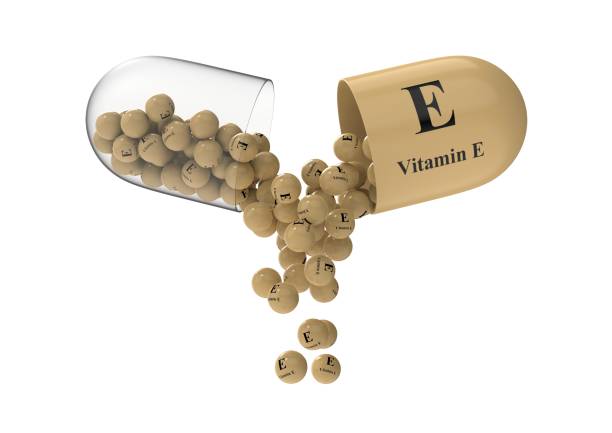






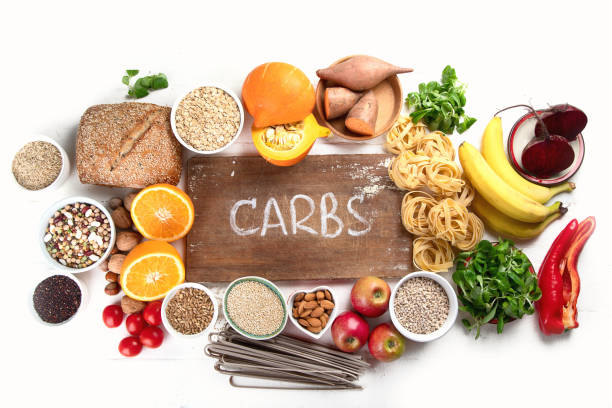










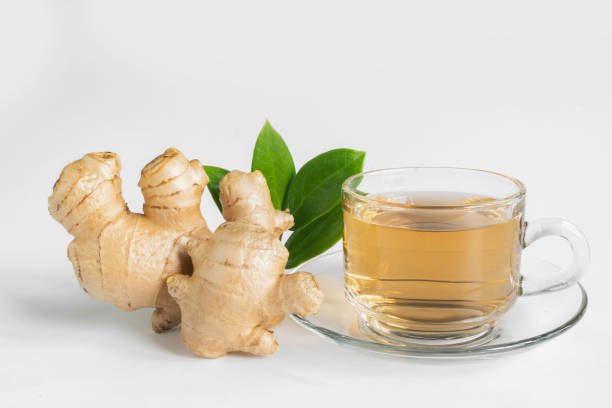
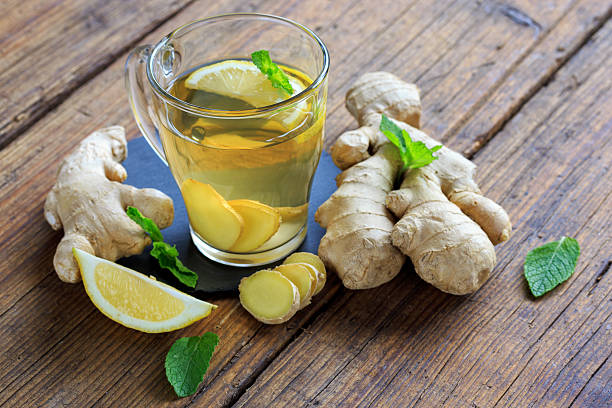


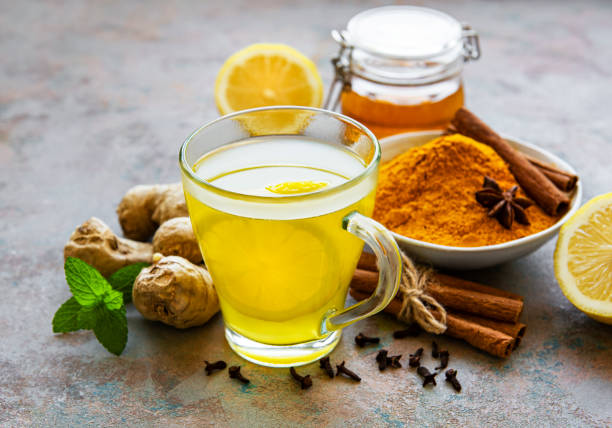
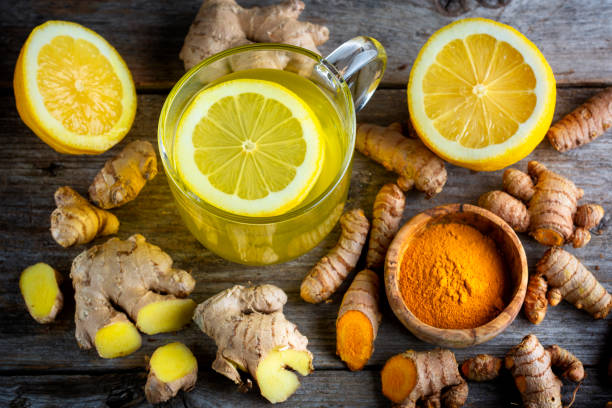

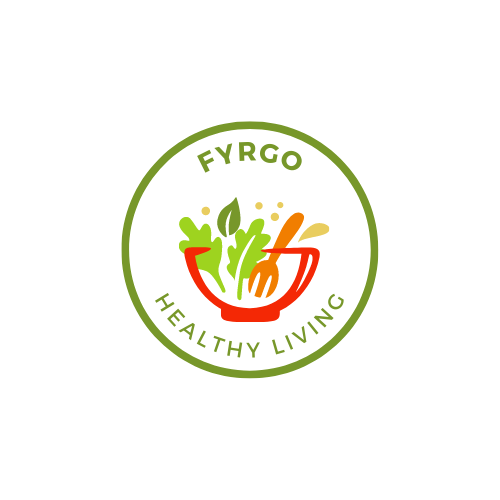
 RSS Feed
RSS Feed